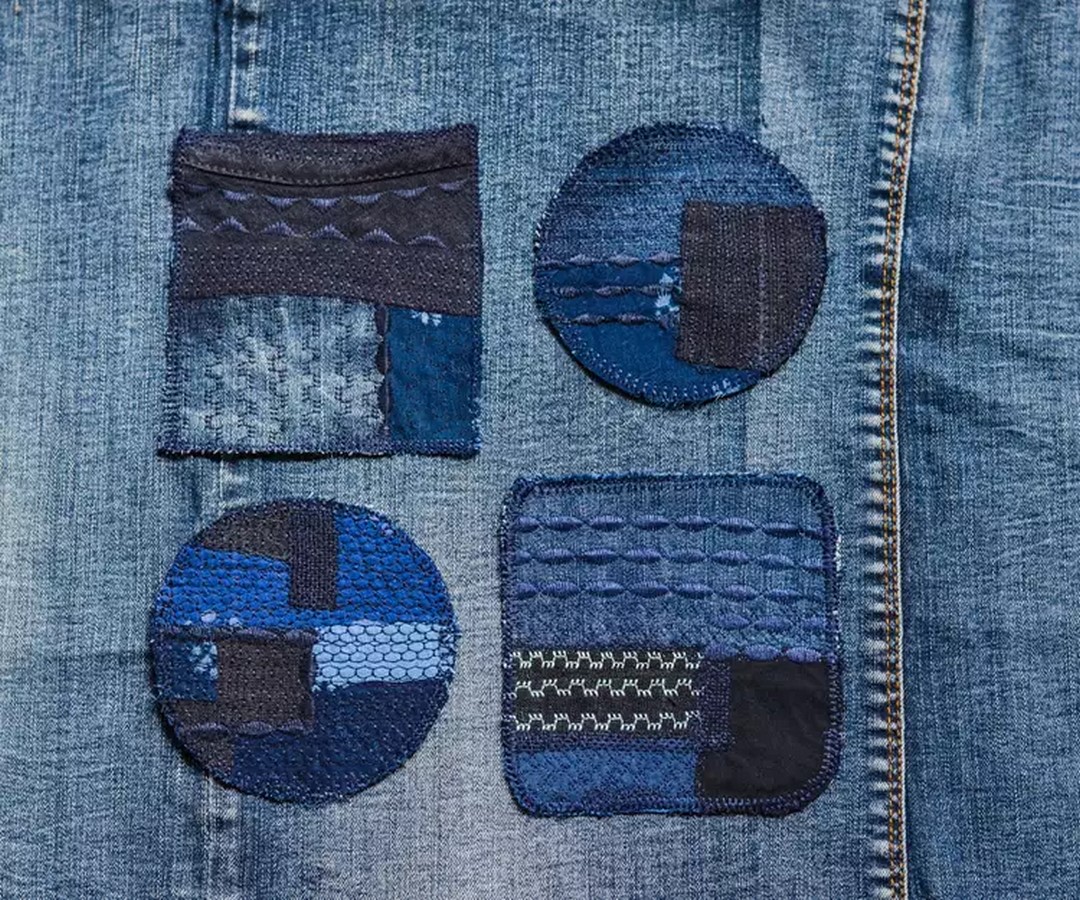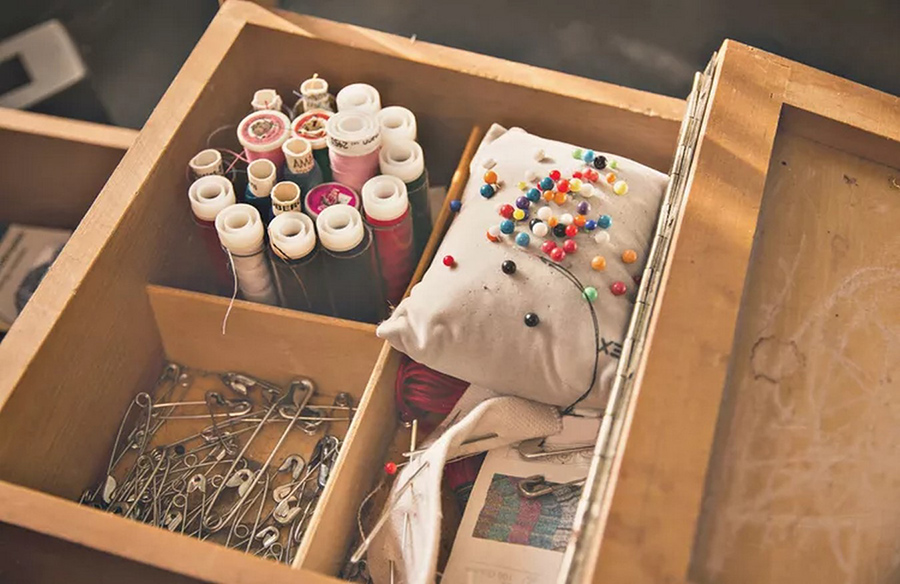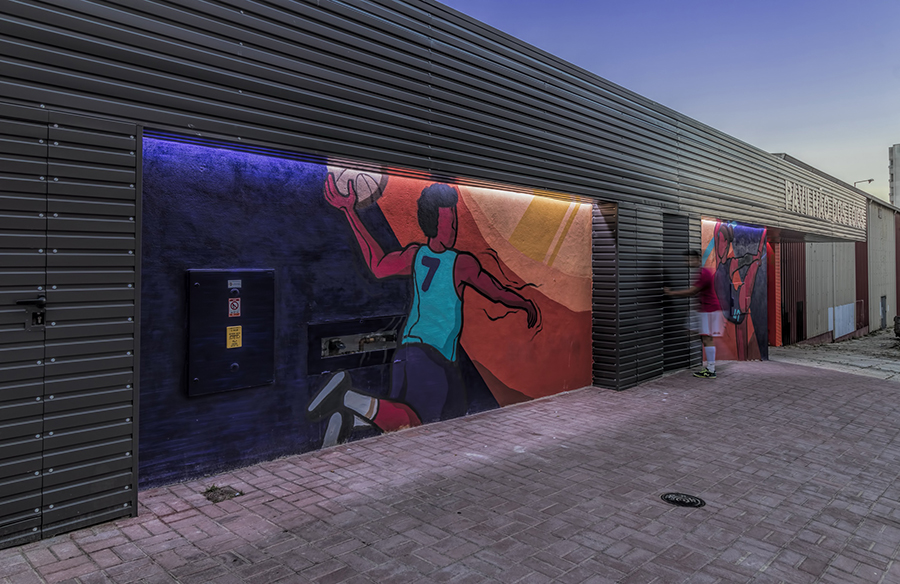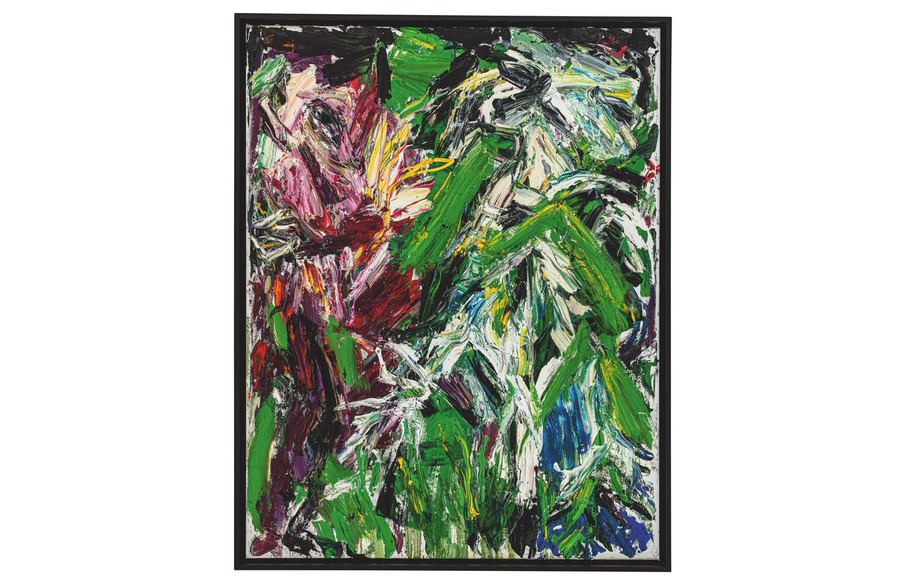In a world dominated by fast fashion, the humble sewing kit emerges as a powerful tool for sustainability, empowering individuals to mend and prolong the life of their garments. Let’s explore the significance of embracing sewing skills and the impact it can have on both the environment and personal well-being.
Embracing the Art of Stitching: Overcoming Intimidation
For many, the art of sewing may seem daunting, but resources abound to support beginners on their stitching journey. Organizations like Fashion Revolution offer accessible guides on mending techniques, while authors like Lily Fulop and Katrina Rodabaugh provide comprehensive insights into garment repair and upcycling. Online platforms such as YouTube offer visual tutorials, making sewing more approachable than ever. With visible mending gaining popularity, there’s ample room for creative expression through needlework.

The Essentials of a Sewing Kit: Building Your Arsenal
Constructing a sewing kit requires only the essentials—needles, threads, a seam ripper, buttons, and other accessories. Opt for neutral thread colors and invest in quality tools like a sharp thread cutter and a measuring tape. While a basic kit suffices for most tasks, a compact version is ideal for travel convenience. Tailor your kit to suit your wardrobe’s color palette and your sewing preferences.
Transforming Repairs into Activism: The Impact of Mending
The rise of fast fashion has contributed to alarming rates of textile waste, with discarded garments inundating landfills worldwide. Mending clothes presents a sustainable alternative, offering a tangible means to reduce waste and environmental pollution. By repairing torn jeans, darning sweaters, and patching T-shirts, individuals can extend the lifespan of their clothing, minimizing the need for new purchases. Visible mending not only adds artistic flair but also challenges the disposable mindset perpetuated by the fashion industry.
Sewing as a Therapeutic Practice: Cultivating Mindfulness and Agency
Beyond its practical benefits, sewing embodies a therapeutic practice, fostering mindfulness and stress reduction. Engaging in rhythmic stitching promotes relaxation and focus, providing a respite from the hustle and bustle of modern life. Moreover, sewing serves as a form of craftivism, empowering individuals to advocate for sustainable fashion practices. By taking agency over garment repair, individuals reclaim control over their wardrobes and consumption habits.
The Joy of Self-Sufficiency: Empowering Individuals, Nurturing Community
While professional sewing services offer convenience, DIY mending cultivates a sense of self-sufficiency and connection to one’s belongings. Sewing at home not only saves time and money but also fosters a deeper appreciation for craftsmanship and resourcefulness. Moreover, it serves as a communal practice, encouraging skill-sharing and community engagement. Through sewing, individuals not only mend garments but also mend the fabric of their communities.
In conclusion, the sewing kit emerges as a potent symbol of sustainability and self-empowerment in an age of disposable fashion. By embracing sewing skills and incorporating mending practices into daily life, individuals can contribute to a more sustainable and mindful approach to clothing consumption. So, let us pick up our needles, thread our stitches, and sew the seeds of change, one stitch at a time.










